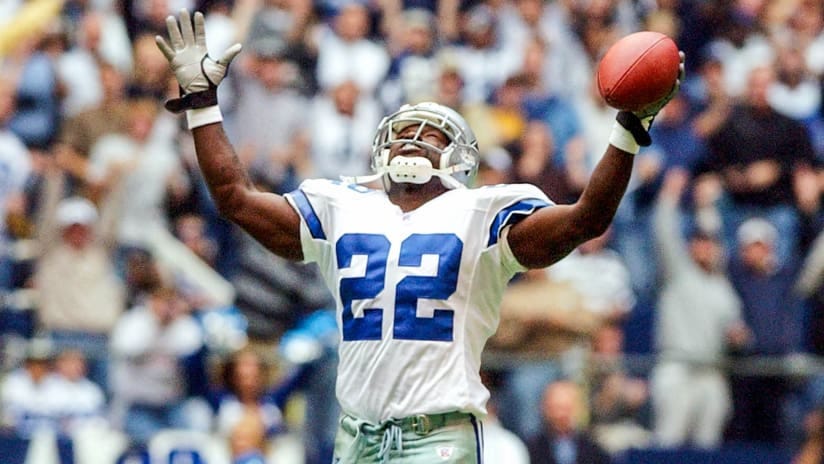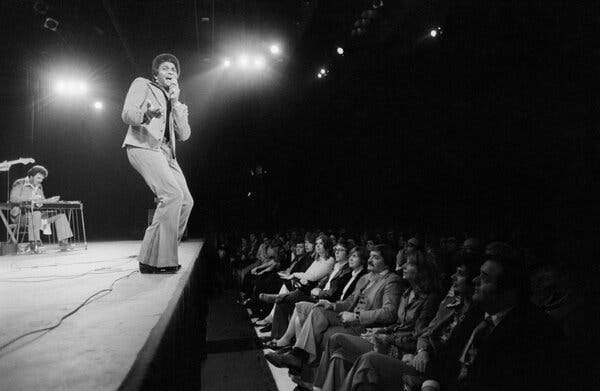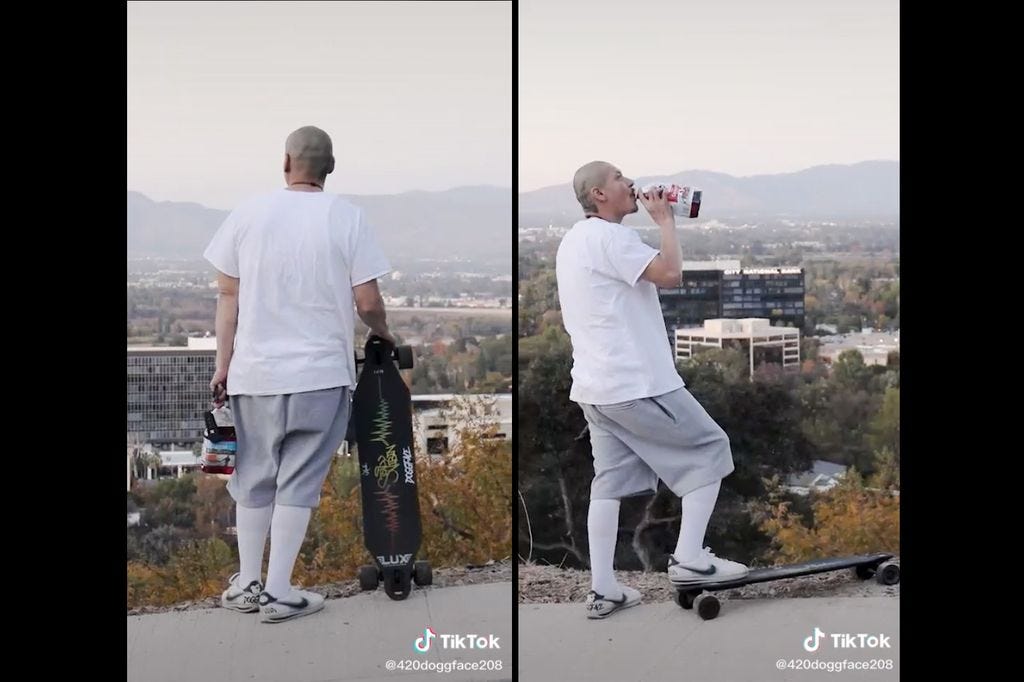Micah's Read of the Week, Vol. 22
Thoughts on the past year and the year ahead, the best writing, music, and twitter accounts of 2020, the country music establishment and Charley Pride's death, and a wonderful update on Doggface420.
Hello, and welcome to Micah’s Read of the Week. Sorry we’re a little late this week.
This is a newsletter filled with things Micah Wiener finds interesting.
Check out the introduction post here and the entire archive of previous newsletters here.
Please, subscribe and share with a friend.
2020 is almost over.
Good riddence. A year we won’t ever forget. It hasn’t been easy. But if you’re reading this, you’ve almost made it. We’ll share some of the most memorable things from the last year in a little bit, but first some thoughts on the new year.
Personally, I like New Year’s. I like all of it. A new start. Hope. A reset. Goal setting. This year feels different. We all have a lot to celebrate. This year is over. The vaccine is on the horizon. If things go according to plan, we’ll be celebrating birthdays, and anniversaries, and graduations in restaurants and bars. We can hug and visit our grandparents again. We’ll be able to walk around the grocery store again without a goddamn mask on. Caitlin and I will get married.
This will happen next year. And we should celebrate it. Cheers.
Best of 2020
Most memorable article
‘It was me. I know it was me.’
I featured this piece from WaPo in August. It was written in May. It was heartbreaking then, and it’s still gut wrenching today.
I keep thinking: What if I’d stopped going to work when the first people started to get sick? What if I didn’t live with my mom? What if I’d stayed upstairs in my room like I’d been doing all week? What if I’d kept my mask on? What if I’d turned away when she reached out to hug me? We only had close contact that one time, and it barely lasted a few minutes, but that was all it took. A week later she was in the hospital. Ten days after that she was gone. That’s the timeline I have to live with, and it points right back to me. I got sick and then she got sick. I lived and she died. How am I supposed to let go of that?
This isn’t over. Please be safe.
Song of the year
“Sweeter” by Leon Bridges
I talked a lot about this song on the Mind of Micah episode embedded below. Released this summer during perhaps the worst racial unrest of my lifetime, this song (and the video) stuck with me in a way I won’t soon forget.
Best twitter account from a 90’s band
@eve6
Remember Eve 6? Eve 6 is not a thing I expected to think about in 2020. But thanks to twitter, the band that recorded “the heart in a blender song” is having an online renaissance of sorts. There’s a lot of entertainment in these tweets: the best is the self awareness, and the attacks on other 90’s bands.

The best stuff is about “the guy from third eye blind.”



Yeah, me too. At least my dude is keeping it all in perspective:
Did the country music establishment kill Charley Pride?
Two pieces about the death of the country music legend are worth a read. From the NYT: What Country Music Asked of Charley Pride and from WaPo: Country music’s pandemic year: Frustration, backlash and a sad ending.
I don’t know why, but I love award shows. I especially like the country music shows the ACM Awards and the CMA Awards. I don’t care much for Nashville’s polished country music, but I love watching the acts that clearly can’t sing either lip sync or sing terribly.
This year I watched both the ACMs and the CMAs. The ACMs were pre-recorded at outside venues. All on-stage performers that weren’t singing wore masks. It seemed to be a very counsious effort to promote safety.
The CMAs on the other hand were live, indoors, and largely maskless. It was striking to see.
The optics were pretty much seamless, the reality less so. Five of the show’s planned performers pulled out because they tested positive for the coronavirus, or were exposed to someone who did. And most cruel was the news that last month, a month after the awards, Pride died, at 86, of complications of Covid-19. It is likely impossible to know whether Pride contracted the virus traveling from Texas to Nashville, or at the CMAs, but many, including the country stars Maren Morris and Mickey Guyton, expressed reasonable concern on Twitter that Pride’s appearance on the show might have led to his exposure. (The CMA released a joint statement with Pride’s representatives after his death noting that Pride had tested negative for the coronavirus before, during and after attending the awards.)
Charley Pride was honored with the Willie Nelson lifetime achievement award. But it was weird. From NYT:
The CMAs are the most revered of the Nashville industry awards shows — in 1971, Pride won entertainer of the year, the show’s highest honor — and its choice to bestow Pride with the lifetime achievement award this year felt, at a minimum, conspicuous.
It was of course a lovely gesture on its own terms. Darius Rucker, one of the show’s hosts and the most successful Black country singer since Pride, has frequently cited Pride’s influence. And Pride’s duet partner, Allen, is a promising young pop-country talent and one of a handful of Black singers with recent hits. But their performance also had the air of tokenism — did no white country star also want to pay tribute to a genre legend?
Unsurprisingly, the CMAs went into damage control mode. The organization’s news release about Pride’s death mentioned his award, but made no mention of his performance a month prior.
Regardless, recent events are a painful asterisk on Pride’s career, and a reminder of the ways Nashville remained deaf to his unique circumstances. That insensitivity continues apace. Pride was a pathbreaker, but the path largely remained empty in his wake, owing to an industry for which the image of racial comity is more important than the furtherance of it, and for which the appearance of freedom during a pandemic far outweighs any cost that arises from that hubris.
The WaPo piece also talked about the country music establishment’s reaction to COVID:
And yet it’s hard to imagine country music’s year in the pandemic ending on a worse note. The genre has made a slew of unflattering headlines over the past 10 months, from Chase Rice’s not-socially-distanced summer concert to Morgan Wallen being dropped as the “Saturday Night Live” musical guest after violating the show’s coronavirus protocols. Then there was the strange tone of the CMA Awards, the format’s biggest night in the national spotlight to celebrate music known for capturing real life and “three chords and the truth,” trying to project an image of cheerful normalcy in a tragedy-filled year.
It’s a lightning-rod topic that almost no one wants to talk about publicly — but behind the scenes in Nashville, according to industry veterans, it’s a subject nearly everyone has talked about. One common term used to describe these types of incidents is “tone deaf”; there’s anger, fear and a lot of questions. Among the questions that come up among people in the industry: Given that nearly every other awards show went largely virtual this year, why did the CMA Awards have to be in person, especially with virus cases spiking in Tennessee? Why do country stars keep showing up on social media attending maskless indoor gatherings or traveling? What message is it sending to their fans?
It also outlines the cutthroat mentality of the country music establishment.
That’s the other issue that has come up repeatedly in conversations with Nashville insiders, even as many declined to speak publicly. (Nobody wants to tick off the CMAs, one said, as others noted the high-profile organization’s power and board members’ influence in town.) Charley Pride was a groundbreaking legend, one of the genre’s first Black stars. He had 30 songs reach No. 1 on the country charts. He could have received the award, which was instituted in 2012, well before 2020. Presenting him with the award in the year of racial reckoning appeared to be a way for the CMAs to recognize the serious lack of diversity in the genre. In doing so, Pride was faced with the choice of whether he should travel for the show — and as CMA defenders have pointed out, he did make the decision to go. But, behind the scenes, many feel he should have never been asked to make that choice.
“The thing that breaks my heart the most is that Charley Pride has been trained for decades about the way country music works — first and foremost, it’s loyalty to country music,” said a longtime Nashville industry insider, who requested anonymity to speak candidly. “If you’re presented with an opportunity and turn it down, or request something be changed, you’re unlikely to get that opportunity again.”
“You smile and be a good soldier. And if you say no? Country music moves on,” the insider said. “The moment you say, ‘I don’t want to do it that way,’ they’ll find someone else who will do it that way.”
R.I.P. Charley Pride.
Let’s check in on 420doggface208
Remember this guy? A few weeks ago we wrote about this guy’s backstory and his fling with internet fame. It was a nice feel-good story.
At the time of his first video, the Idaho native was working on a potato farm and living in a trailer with no running water or electricity. The video might not even have even happened if his car hadn't broken down. His merchandise website explains that he received $15,000 in donations after his video went viral, allowing him to care for his two teenage daughters. At the end of November, he was also able to purchase his first home in Idaho with $320,000 in cash.
Well, guess what? Things are still happening for 420doggface208.
While some influencers flame out after a viral moment, Apodaca’s fame and appeal in the eyes of brands has only grown. Apodaca has posted on behalf of brands including Xbox, LG, Raising Cane’s, ASOS, Snoop Dogg’s Indoggo gin and Idaho Potatoes. He's appeared with Snoop Dogg in an ad for smart home company Vivint, created a commercial for Idaho-based KJ’s Superstore, endorsed skateboarding brands including Sharkwheel and participated in TikTok song campaigns.
Brands are working with Apodaca in different ways. LG did a laundry dance party duet with Apodaca and Alfonso Soribeiro from “Fresh Prince of Bel-Air."
What about the weed?
Apodaca is also not shy about his love for marijuana and often speaks directly to his followers as “420 souljahz.” His posts reference him smoking or commenting about his love of weed. All of Apodaca's Mary Jane talk does not seem to be driving brand partners away, however. He even worked with Cheech & Chong to be a character in their new hemp and marijuana lifestyle app, “Cheech and Chong Bud Farm.” As Apodaca would say: “Steady vibin.”
Steady Vibin indeed.
Where else can I find Micah content?
Podcasts: Mind of Micah, Back Door Cover, Too Much Dip
Twitter: @micahwiener & @producermicah (Why two twitters? It’s a long story)
Instagram: @micahwiener
LinkedIn: @micahwiener
Peloton: #badboysofpelly@micahwiener
Email: micahwiener@me.com




